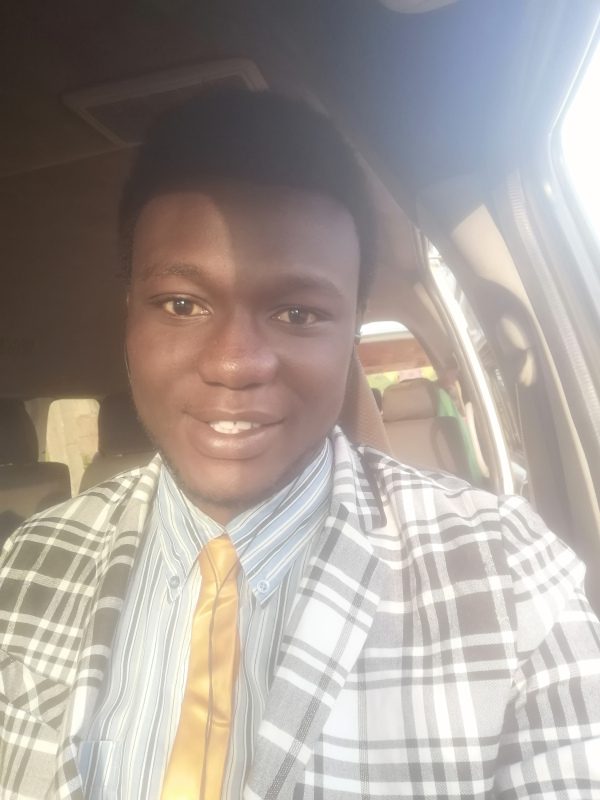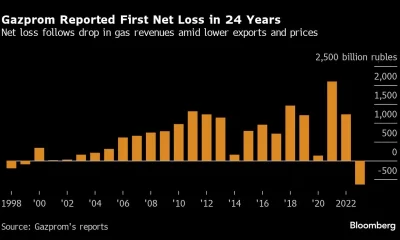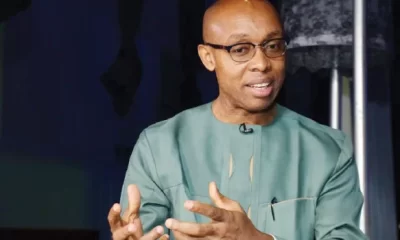Political Issues
2023 Election: Sound Electoral Processes Can Produce Competent Leadership -By Tunmise Ajeigbe
Section 15 of the 1999 constitution as amended has given INEC the mandate to serve as an independent body committed to hold free, fair and credible elections for the sustainability of democracy in Nigeria. It is expected to uphold such values as; fairness, transparency, integrity, impartiality, and excellence.

In recent times, the electoral act (amendment) bill has been generating mixed reactions from members of the public. Several politicians both from the ruling party and the opposition side have different views mostly based on their respective interests. Political actors such as political analysts, Civil Society Organisations and the media have also contributed in letting Nigerians know the essentialities of good electoral acts and the implications of ill electoral process, most especially ahead of the 2023 general election.
Since democracy is the government of the people, by the people and for the people, it means that every society that embraces democracy must uphold the desires of the people. The process of choosing leadership must rightly depend on the active participation of the people in socio-political activities such as; awareness and alertness prior election, voting education and post-election engagements.
“Do not find fault, find remedy” says Henry Ford. This statement pricks into individual leadership qualities. What are the best practises in achieving good leadership as a nation? The voting system in Nigeria is faulty and needs to be addressed from its root. Starting from the ‘declaration of interest’ stage by politicians to contesting primary and major elections. All these give birth to different dimensions of election malpractices either by the politicians, electorates and the electoral institution. Most times, this results in several casualties such loss of lives, election disruptions and destructions of election properties.
Oftentimes, most elections conducted by the electoral institution are being justified by court verdict due to the fact that the electoral body has failed the nation. “The court of law is the last hope of a common man, and parliament is the first hope of a common man” these ascensions are like blind lies to Nigerians. INEC as an independent institution has lost its integrity by failing to give hope back to the people of Nigeria.
IS INEC AN INDEPENDENT INSTITUTION?
This supposed “Independent body” still looks up to the Presidency for directives on how to perform its duties, even though its duties are expressly spelt in administration before it can perform its role as expressed in the constitution and the electoral act.
Section 15 of the 1999 constitution as amended has given INEC the mandate to serve as an independent body committed to hold free, fair and credible elections for the sustainability of democracy in Nigeria. It is expected to uphold such values as; fairness, transparency, integrity, impartiality, and excellence.
INEC was established in 1998 under the military regime led by General Abdulsalam Abubakar to conduct and administer credible elections in the nation. The country was transiting towards the fourth republic that would begin in May 1999. The election conducted in 1999 to welcome modern democracy was generally accepted by the Nigerian people, but not until four years later. In 2003, the body conducted another election. During the Post-election analysis, Some election observers accused the institution of aiding rigging. It’s repeated poor outing in almost every election year has resulted in Nigerians retracting their trust for the institution. Apparently, it is an institution, dependent on the presidency to do the bidding of presidential cabals.
How can we say INEC is an independent institution when its annual budgetary allocation is rightly determined by the executive, which is not supposed to interfere in the latter’s activities? This situation questions the value of Impartiality supposedly inherent in the establishment of INEC. Secondly, the mode of appointing the leadership of the institution is also determined by the government in office. This can also result in interference by the government.
All the expected values by the institution cannot not be achieved under a faulty system. The fate of the said independent body is determined by some political associates neither to be influenced by the ruling administration. This is an alteration to the mandate of its “Independency”
ELECTION DISPUTE AND COURT VERDICT
This is another major challenge in Nigeria’s electoral process. The electorate mobilise themselves to exercise their civil right of voting, as it is obligated by the constitution. However, many elections in Nigeria are resolved through litigation due to the weakness of the electoral body as well as the candidates’ loss of faith therein.
This culture has become a new normal. Eight out of ten elections conducted in Nigeria are being challenged. These elections lack credibility, hence the legal disputes that follow. In fact, in the current fourth republic, almost all the presidential election results by INEC are challenged in the court of law, either by political parties or by individuals.
Most times, such litigations are catalysed by unconstitutional internal affairs by acting political parties. Nigerian politicians often approach elections with untoward desperation. They engage in all sorts of activities, legal and illegal, to actualize their political ambitions without considering the implication of their actions on the people.
Some Nigerian state governments are beneficiaries of the court verdict, where the people suffer the most. States like Zamfara, Imo and Bayelsa have their last gubernatorial election determined by court verdict. Now, that judiciary determines the people’s fate. Political analysts argued that if this shambolic electoral process continues in the same threads, democracy may start falling outside the wheel in the nation. Because, the court of law is assumed to have blind eyes toward facts but only to create an avenue to argue on evidence provided.
Evidence is far from being fact and actuality, it can be cooked up to favour the wrong side. This an anti-democratic act in the society, when the will of the people is hijacked by some rogues to promote impunity and lawlessness.
CALL TO REFORM THE ELECTORAL ACT
Since the last quarter of the year 2021 (last year), the call for electoral reforms gained momentum among Nigerians. The electoral act was lastly amended in 2015. Effect of good electoral reform can put an absolute end to the sad leadership-trouble that is currently bedevilling the nation.
The National assembly as the first hope of the people in its maximum capacity called for the reformation of the electoral act. The previous assembly led by Senator Bukola Saraki channelled some effort. Unfortunately, the executive arm declined the call by not attending to the Electoral Act {Amendment} Bill. Again, the present assembly encountered similar trouble with the bill, as President Buhari failed to sign the bill for the second time.
Some clauses in the Electoral Act {Amendment} Bill deal with issues regarding electronic voting, electronic transmission of results, direct primaries and indirect primaries. Nigerians begin to understand that the cost of running an election in the nation is having an adverse impact on the country’s economic progress.
Some well-known civil society
organizations played their civic role in ensuring that this current administration does the needful to curb election rigging and all other manners of election malpractices.
POSSIBLY RESOLUTION
By 2023, it is going to be twenty-four years of modern democracy. Yet, Nigerians haven’t experienced a credible election that will enhance the right political sensitizations. Years of serviceable lessons. Nigerian people find themselves in a terrorism republic. The country people are striving on a daily basis to uplift themselves right above the forsaken economic mess they are currently in. statistics and indexes have shown that Nigeria is the world capital home of poverty and the topmost nation in the world for out school children.
At this phase, bitter days are to be cast away, not only by our prayers, but the ability of Nigerians to change the narrative themselves. Nigerian youths must realise that all the powers required to overcome their political tribulations are at their disposal. More than 65% of the nation’s total population are between ages 15 and 45 years.
Massive turn-up for elections can yield goodness for Nigerians. The country still experiences low turnout in every election. War against political apathy must be won and the Nigerian teeming youths need to be a partaker.
Lastly, to all the animalistic Politicians whose ambitions are worthy of bloodshed. Who does not even bother about the people’s welfare anymore? Those who painted our wall with blameful colours. It is high time Nigeria got redeemed and regained her lost glory. We pray things start falling apart for us.
If you haven’t got your PVC ‘Permanent Voter’s Card’, this writer urges you to apply for yours. It is your right. The fight against bad leadership can be won with your PVC, especially when you are on the side of a better Nigeria. Ask questions as much as possible when you encounter politicians around you. Watch carefully the kind of political party that wins your heart. Always be patriotic and believe the change can start from you.
Let’s make Nigeria proud again.
Tunmise Ajeigbe is public affairs analyst from Ibadan the capital city of Oyo. he can be reached on ajeigbetunmise1996@gmail.com



















